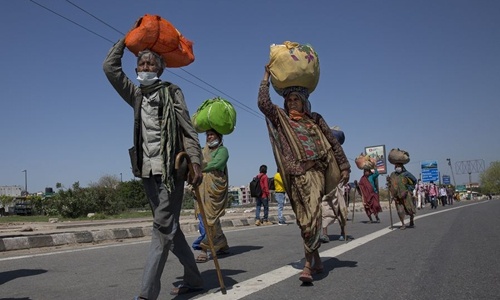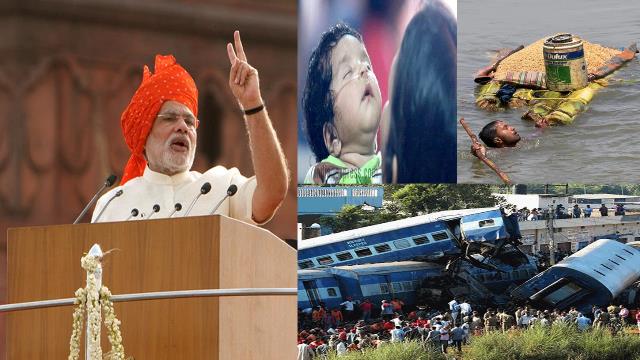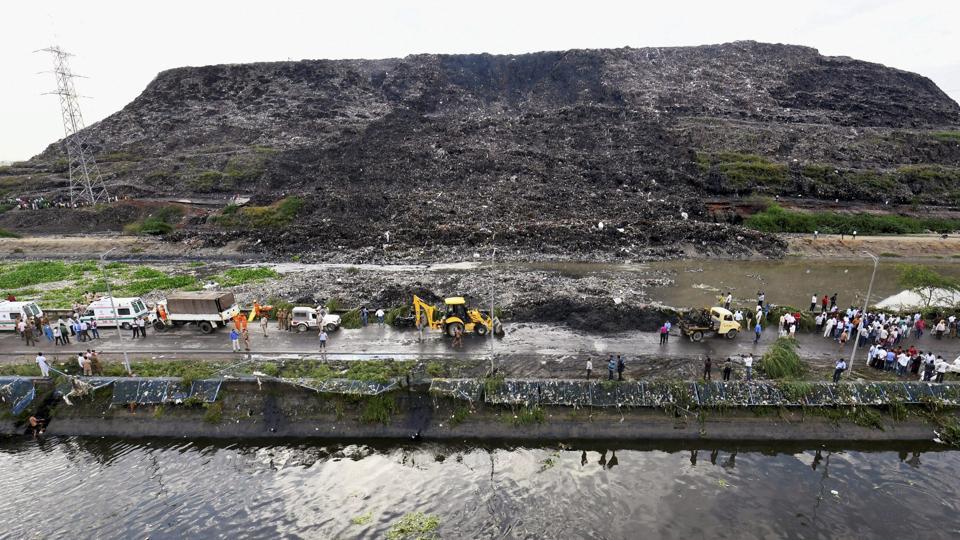In a latest development to the ongoing coronavirus pandemic, the Ministry of Home Affairs has allowed the movement of migrant workers stranded at different locations by train. The Ministry of Railways will designate special nodal officers who will coordinate with states and union territories for the transportation of the migrant workers from one state to another. These workers will be transported using ‘Shramik Special Trains’. These trains will run from point to point in coordination with specific state governments as per the standard protocols for sending and receiving such persons. Passengers who are found asymptomatic will be allowed to travel in this system and people will be sent in batches to maintain social distancing norms and other associated precautions. All passengers will have to wear face masks and meals and water would be provided at the ordinating stations. Upon arrival, screening and transportation would be carried out by respective state governments. While the government has come up with its plan of transporting migrant workers, there are some questions that we ought to reflect upon.
India, like the rest of the world is undergoing a very rare crisis and is facing unprecedented socio-economic and institutional challenges. It has almost completed five weeks of a nationwide lockdown meant for containing and controlling the spread of the novel coronavirus pandemic and while all this was unfolding, a section of the population that was at the receiving end and suffered endlessly was India’s migrant class. After five weeks of struggling for survival, the Centre has now allowed migrant workers to return home officially.
During these five weeks, hundreds of thousands of people primarily belonging to the migrant class faced numerous hardships and unprecedented challenges to survival.
This class set out home on foot for thousands of kilometres in the absence of transportation networks and many of them died of exhaustion and starvation.
Utter poverty and helplessness, starvation and exhaustion accompanied by loss of livelihoods- accompanied these migrant workers in their difficult days and nights.
After five long weeks of braving lathis of the police and braving disparity of food and dignity, they often find themselves clapped into migrant shelters that are no less than jails.
But the question that we really ought to ask at this juncture is whether instead of putting Indian migrant workers through this prolonged and extended period of hardship and anguish, hunger and loss of livelihoods could the Centre not have allowed these migrant workers to return back home before the lockdown was imposed, when the reported cases were in hundreds and hadn’t reached a peak of over 30,000?
Join the debate – email thenewleam@gmail.com
- I appreciate your starting a debate on this pertinent issue and inviting us all to send us our responses. I believe that as a nation we have indeed failed our poor in these days of collective hardship. Images of migrant workers taking long and trig journeys back home on foot, being kept in relief camps that resemble prisons and being denied dignity of life are all happening in front of us all and all we are doing is waiting for the government to take cognisance of the matter. I feel utterly ashamed of our whole socio-cultural and political institutions that have allowed for such degeneration of migrant workers. This is a class that makes our lives in the cities functional but we have shown them utter indifference when they needed our support. You are also right in suggesting that the entire five weeks deadlock could have been avoided with planning and welfare in mind but this delay has been quite life threatening for the class. I appeal to the authorities to take cognisance of the gravity of the matter and understand that India’s migrant class is indeed at an unprecedented position of hardship and vulnerability at this juncture.
R.K. Meghanathan
Madurai,India
- I feel that India’s migrant class is today at a complete loss because not only have migrants lost their livelihoods and sources of income but they have also been denied dignity in living. Being sprayed with chemicals on their way back home or being trashed by policemen for evading social distancing protocols, this class of people has seriously been bearing the brunt of political aloofness and institutional apathy. I feel that not only should the nation-state work to provide them free food and shelter but it should also ensure that once the lockdown is lifted, they are given sources of income. With their meagre savings over and families waiting to be fed, India’s migrant class deserves to get the state’s attention in this critical moment.
Susan Dawe
Colombo, Srilanka
- I came across your extensive coverage of the migrant crisis in times of Corona and really want to congratulate you for bringing out stories from the grassroots that often escape the eyes of city centric media. I am happy to say that in states such as Kerala and West Bengal, the government has been steadily working to ease out and make relief accessible to those in need and it is time that rest of the country begins to follow up. I also urge my fellow citizens to take matters into their hands when they too can help migrants in their communities. With safety protocols in place and an assurance of safety, why don’t we all become more accommodate and less selfish? While we all fill up our fridges and pantries to ensure that we have enough food for weeks to come, why don’t we help the poor and homeless by distributing food grains and other essentials as a society? India is facing an unprecedented crisis and we don’t really know how long it will take before all is normal again but in the meantime, we have to work together to mitigate it.
Tanveer Imam
Delhi, India










